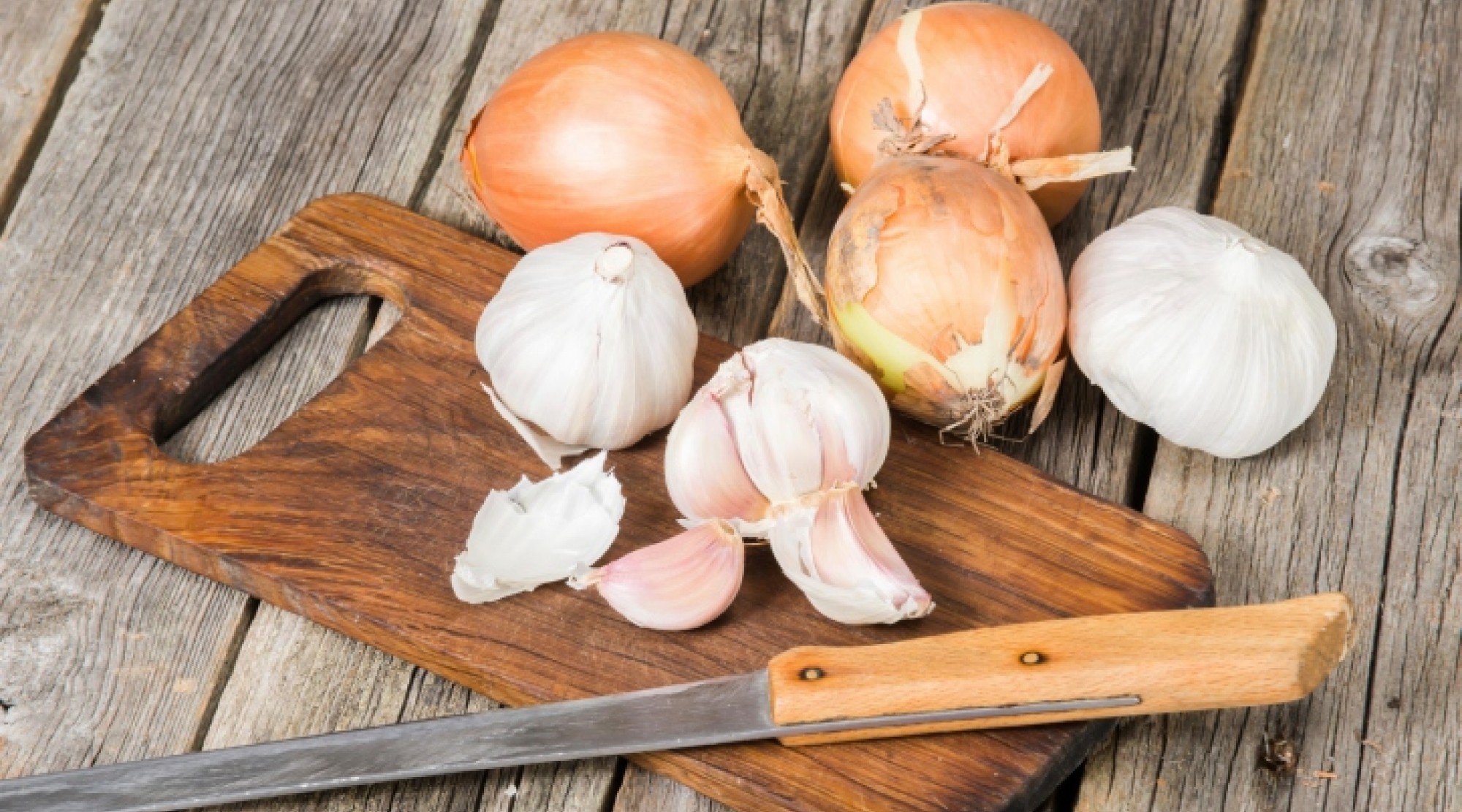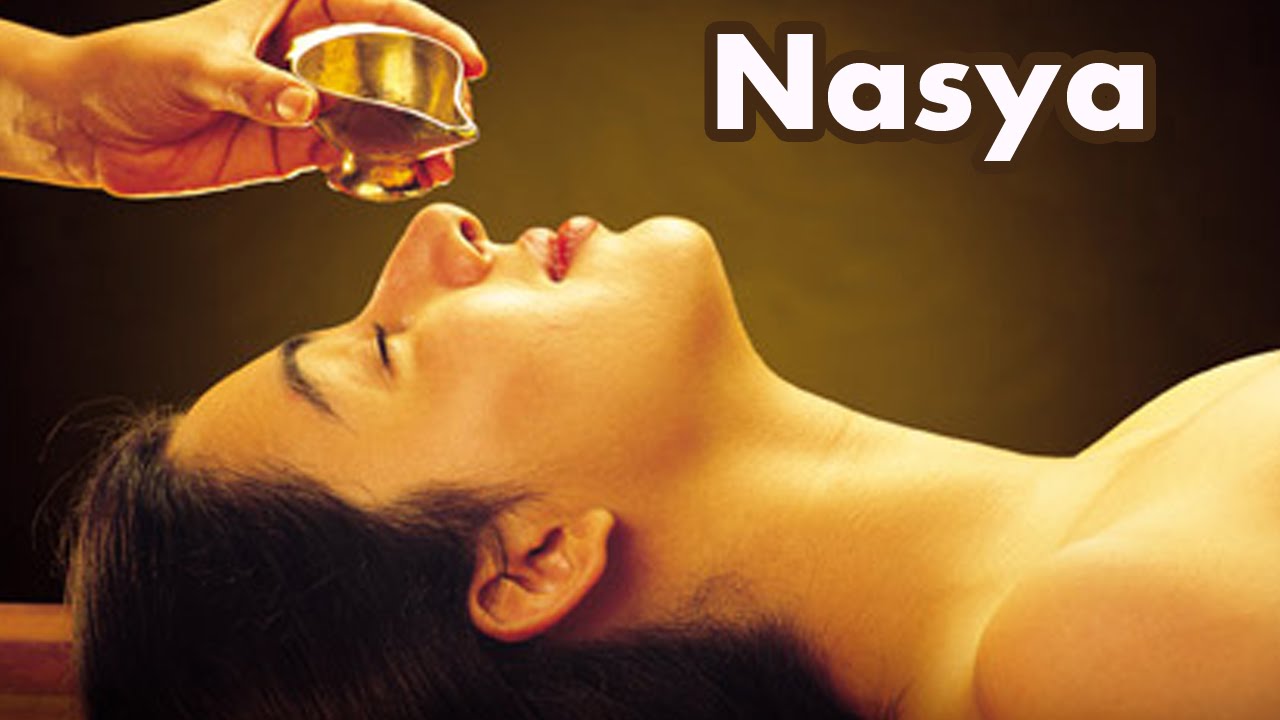
Anger is an emotion that is difficult to react to, understand and most importantly bring under control. And yet, it's one of the most relatable human emotions. It's seldom easy to understand or break down the root cause of anger when it's coming from someone else, let alone control it or tame it when it's stemming from inside you. We often become pretty illogical when we're angry, and end up saying and doing things, which we ordinarily wouldn't. This often leads to embarrassment and/or acts of passion which lead to frayed relationships. Psychology has a number of behavioural and medical therapies that are administered to people prone to frequent angry and emotional outbursts and hostile behaviours. But no branch of study or science has understood the body and the mind as thoroughly as the ancient Indian practice of Ayurveda. There are hardly any physical or psychological problems that Ayurveda doesn't have answers to. Ayurveda has suggested practices to calm anger as well and it involves a couple of simple exercises with readily available foods and drinks.According to the book, The Complete Book Of Ayurvedic Home Remedies by Dr. Vasant Lad, anger is caused when the Pitta dosha or the fire energy of the body is aggravated. He writes, "Pitta is necessary for right understanding and judgement, but when it gets disturbed or out of balance, it creates misunderstanding and wrong judgement, leading to anger and hostility." Dr. Lad has suggested some home remedies to calm the fire energy and bring temper under control.
Here Is An Ayurvedic Diet To Control Anger
Dr. Lad has dedicated an entire chapter in his book to map a 'pitta-pacifying diet', which involves avoiding foods that generate heat in the body, including hot, spicy and fermented foods. He has also suggested avoiding citrus and sour fruits until the pitta has calmed down. He has also advised to consume simple, bland and cooling foods when you're angry and one must also keep away from alcohol and caffeinated foods and drinks during that time. More specifically, he has recommended two drinks for those looking to pacify their pitta.
Herbal Tea: Chamomile Tulsi Rose Tea
To prepare this tea, take one part chamomile, one part tulsi or holy basil and one part rose powder. Steep half a teaspoon of this mixture in a cup of hot water and keep it for some time, until the water cools down. Drinking this tea three times a day can soothe the aggravated pitta.
Pitta Pacifying Drink: Grape Juice Potion With Cumin, Fennel Seeds And Sandalwood
To make this potion, take one cup of grape juice and add half a teaspoon each of cumin or jeera, fennel or saunfand sandalwood powder or chandan to it. This drink, when consumed, might settle angry feelings in the body and also heal any burning sensations in the stomach.
Other than the diet, Dr. Lad also recommends breathing exercises and meditation, as ways of calming the aggravating pitta. These remedies makes sense as the ingredients involved in the food have a cooling effect on the body. So in conclusion, every time you feel angry or upset and want to snap at someone, take a few deep breaths and go make yourself a calming tea!
Are you tired of hearing the latest pitch on how to lose weight, when all you want to do is to just gain some kilos instead? Unfortunately, this is the truth; there is way too much information on how to lose weight but barely anything on how to gain weight, especially in a healthy and balanced way. But the good news is that you can turn to Ayurveda for some solutions to put on weight the right way and the best part is that it determines your optimal weight not by the number on the weighing scale but by your body constitution- kapha, vata and pitta. Here are few important strategies that may help you gain weight in a way that it does not hamper your overall health. The Ayurvedic approach is healthy, simple and holistic along with being effective.According to Ayurvedacharya Dr. Partap Chauhan, Director, Jiva Ayurveda, "A person should always maintain healthy weight - not too much and not too less. Ayurveda recommends 'balance' or an 'optimum state' in everything, including your body weight. That said, if you are recuperating from an illness or you are very thin and you want to gain weight, do it gradually and naturally. Do not rely on weight-gain supplements which may cause liver and kidney problems. A healthy person, with appropriate weight for his or her age and height is more likely to have good immunity and lead a happy life."
As per Ayurveda, people with Vata dominant physiology are typically thin, while people with Kapha dominant physiology tend to be overweight. So, if you have a Vata body-type, there is a limit to how 'fat' you can become. Instead of worrying about gaining weight, it is imperative to focus on being strong and healthy.
Dr. Chauhan lists down some tips that Ayurveda suggests in order to gain weight in a healthy way-
1. Include soy bean in diet. Soy is high in protein and is perfect if you are a vegetarian looking for good sources of protein. Eat a fruit or drink fresh fruit juice, if possible every day or at least three times a week. If your diet includes non-vegetarian foods, you can add any meat of your choice twice a week.
2. Include more curd, ghee, milk, sugarcane, rice, black gram and wheat in your daily diet. These are all good for gaining weight in a healthy manner.
3. Gaining weight doesn't mean you don't have to exercise. In order to gain weight healthily, one must exercise regularly to allow the body to metabolize the food you have consumed and further keep your appetite strong.
4. Small quantities of spices such as cinnamon, garlic, ginger, cardamom, clove and black pepper in your diet help in stimulating your appetite.
5. Sleep well at night. Get at least eight hours of proper sleep. Avoid distractions before going to bed, like mobile phones or laptops. Drink a glass of cow's milk with a pinch of turmeric for a sound sleep.
6. Eat in a normal speed, neither too fast, nor too slow. Eating at a normal speed stimulates the salivary glands, which aids digestion.
7. Do not watch television, use your mobile phone or read while you are eating. Eat actively and allow your body to be engaged in the act of eating.
8. Choose a clean and noise-free environment to have your meals.
9. Do not drink a lot of water before or after meals. You may take small sips during meals if you need. In winters, you can sip lukewarm water during meals.
10. Massaging the body with sesame oil allows the muscles and bones to become strong. It also promotes blood circulation which will carry nutrients to all parts of your body.
As per Ayurveda, people with Vata dominant physiology are typically thinHome remedies to gain weight
-Take equal amounts (50 grams) of figs, almonds, dates and raisins. Add 100 grams of gur (sugarcane jaggery). Saute it in cow's ghee until it takes a jelly-like consistency. Eat this twice daily, after meals.
-3 - 5 grams of Ashwagandha and Shatavar powder taken every morning and night with milk will help you gain weight.
So, if you are looking to add those extra kilos, make sure you do it in a healthy way.
The usage of onion and garlic in an Indian kitchen is indispensable - thanks to the exceptionally amazing flavour they offer to curries, stir fries, stew, soup and what not. Both the ingredients, belonging to the allium family, not only add to the flavour, but also have numerous health benefits to offer. However, Ayurveda suggests that one shouldn't consume excessive amount of onion and garlic. Ayurveda defines nutritional properties of food based on six tastes that include sweet, salty, bitter, sour, pungent and astringent, and their qualities namely, sattva, rajas and tamas. While both onion and garlic are considered excellent foods, they still are not favoured by Ayurveda.
According to Ayurveda expert from NirogStreet, Ram N Kumar, "Ayurveda is not against eating onion and garlic; in fact, garlic is deemed as an important medicine in Ayurveda. However, onion is considered tamasic (makes people irritable) and garlic is known to be rajsic (disturbed sleep and drained energy) in nature, which means both these ingredients produce heat in the body. While body needs some amount of heat, excessive heat may only lead to increased risk of health problems."
Undoubtedly, Ayurveda prizes onion and garlic as powerful medicines and do not recommend avoiding them. Ayurveda principles are generally confused with spirituality and yoga that recommend a no onion and no garlic diet, as they both are believed to distract an individual's focus and attention.
Health Benefits Of Onion And Garlic
Both the ingredients have a long list of health benefits. Garlic has often been considered as a wonder drug. It has been used to prevent infections due to its anti-bacterial, anti-fungal and anti-viral properties, and it is also known to reduce chances of cancer; thanks to its anti-carcinogenic properties. Onions, on the other hand, are known to reduce inflammation, remove toxins, normalise digestion and reduce cough. These are just a few health benefits attributed to the two humble kitchen ingredients.
So, go ahead and add these two foods in your daily diet; just remember anything in excess is bad for your health and moderation is the key.
According to Ayurveda, the delicate skin of the nasal passages and the Eustachian tubes of the ears require lubrication to stay healthy, balanced and protected in the colder months.
Traditionally, a saline or salt water solution was used during neti to flush the sinuses. Salt water is very drying to the skin and will dehydrate the delicate nasal mucosa if not followed with lubricating nasya.
Dry sinuses are easily irritated by pollutants, pollens and dry air. After performing neti, always follow it with nasya. While neti offers powerful support for sinuses, the therapy wasn’t traditionally considered complete until nasya was also performed.
Nasya Herbalized Oil Therapy
Administering nasya is aimed at lubricating the sensitive tissues of the nasal cavity, so that they are less reactive to dryness and airborne irritants. The result is a more complete therapy that won’t create a dependency on either one.
Nasya Therapy Procedure
Nasya is a simple procedure where 3-5 drops of an herbalized oil, usually sesame or olive oil, is applied into the nostrils and sniffed. This lubricates the nasal mucosa, leaving them cleansed by the neti and lubricated by the nasya.
Nasya is best done immediately after neti.
Use a properly prepared oil, which is made by slowly cooking lubricating and soothing herbs into the oil.
Warm the oil by putting oil in the dropper and holding it under hot water until it is just above body temperature (test temperature on forearm). You can also warm the whole bottle in a cup of hot water.
Tip your head back as far as possible and exhale fully. If you like, you can lay on the edge of a bed or sofa. Drop 3-5 drops of oil into each nostril and sniff deeply. Start with 3 drops and increase if comfortable.
Use daily for two weeks after neti and as needed afterward.
Important Notes:
Nasya is best done on an empty stomach.
It is best not to do nasya before bed to prevent dripping into the larynx.
It is normal to taste the oil in the back of the mouth or to have some oil drip out of your nose for a minute or two afterward.
In addition to happy sinuses, nasya has some unexpected benefits like greater clarity of mind and a calmer nervous system.
Need Support?
Have Dr. Douillard design an herbal program for you with a phone consultation.
Get started healing with the 28-Day Ayurveda Challenge eCourse
Shop by Health Topics in the LifeSpa Store
Need Supplements? We can help!
nasya-oil_340_whiteLifeSpa’s Nasya Oil is a USDA certified organic blend of Ayurvedic herbs and oils traditionally used to lubricate and cleanse the nasal passages. Regular sinus care supports the cleaning of brain and CNS lymphatics as well. Following neti (salt water irrigation) with nasya (herbalized nasal oil therapy) is a powerful tradition.
Neti Pot for Nasal Cleansing:Neti_group The precursor to Nasya, Neti is a system of nasal irrigation, or cleansing, that helps keep the nasal passages free of dust, pollen, and other irritants from the air. LifeSpa’s ceramic model is chosen by most people as their primary nasal cleansing pot for use at home.
Neti Salt: The Neti method uses a saline solution of water and salt to irrigate and cleanse the nasal passages. This Nasal Cleansing Salt may be used with any brand of nasal cleansing pot or a nasal saline rinse squeeze bottle.
Ayurveda Challenge Supply Kit: This Supply Kit includes all the supplies that you need to successfully complete the 28-Day Ayurveda Challenge Online eCourse
Polycystic ovary disease or PCOD is a kind of hormonal disorder in which a woman produces a surplus of male hormones like testosterone.
High levels of male hormones produce symptoms like irregular ovulation or no ovulation at all. In simple words, women with PCOD or PCOS don’t release a mature egg from their ovaries every month resulting in infertility. PCOD affects one in 10 women worldwide.
Women suffering from PCOD suffer from symptoms like heavy vaginal bleeding. This is because, as they don’t ovulate and produce the hormone Progesterone like normal women do and have normal periods, the lining of their uteri becomes thick leading to heavy bleeding and sometimes uterine cancer.
The other common symptoms of PCOS are:
Acne
Weight gain
Oily skin
Heart problems
Irregular periods
Migraines
Hirsuitism
Infertility
Mood swings and depression
There is a propensity for developing diabetes as well in PCOS affected, as a number of women with PCOD are resistant to the action of the hormone insulin used for sugar metabolism. This means that it takes larger than normal amounts of insulin to maintain normal blood sugar levels. Though fairly common, PCOD has no surefire cure in mainstream allopathic medicine but Ayurveda can help alleviate PCOD symptoms in a big way.
PCOD - How Ayurveda Can Help?
In Ayurveda, PCOD is caused due to an imbalance of any of the two doshas - Pitta (Fire) and Kapha (Water). Aggravated Pitta causes contamination of the dhatus or tissues like blood and plasma. This causes a buildup of toxins or ama in the body.
In PCOS patients, these toxins get accumulated in the channels of the mind, leading to an imbalance of hormones secreted by the pituitary gland. This results in an imbalance of female hormones and causes the formation of ovarian cysts which is nothing but a collection of fluids within the ovary, anovulatory periods or periods with no ovulation etc.
Ayurvedic herbal remedies for PCOD
Ayurveda works on these problems:
-Correcting hormonal imbalance
-Reducing obesity
- Reducing high cholesterol levels
-Treatment for insulin resistance
Herbs like Ashoka (saraca asoca), Dashamoola are amongst a group of herbs which are used to prepare Sukumara Kashaya like Ashwagandha, Eranda, Shatavari etc for correcting hormonal imbalance.
Other drugs for curing PCOS are-
1. Shatavari or Asparagus racemosus
This helps mainly in promoting normal development of ovarian follicles. It also regulates periods and aids in revitalizing the female reproductive system. Shatavari also helps in controlling high levels of insulin due to PCOS, due to its phytoestrogen or natural plant based estrogen levels.
2. Guduchi
Guduchi is a powerful anti- inflammatory herb. We know that chronic inflammation in body tissues is the root cause for insulin imbalance and ovarian cysts in women. This herb helps in revitalizing body tissues and lowering insulin resistance.
3. Shatapushpa or fennel
Fennel seeds are used as a supplement as the phytoestrogens in them bring down inflammation and control insulin resistance.
4.Triphala
Triphala is rich in vitamin C- a powerful natural antioxidant that helps in reducing inflammation by reducing free radicals. Hence this remedy is excellent for cleansing and detoxifying systems and is therefore best taken prior to taking any other Ayurvedic medicines to improve outcome.
5. Aloe Vera- Kumari (Aloe barbadensis)
Aloe Vera is yet another Ayurvedic herb that is extremely beneficial in treating PCOS as it helps in regularizing menstrual cycles and promote normal menstruation. It also normalizes hormonal imbalance.










